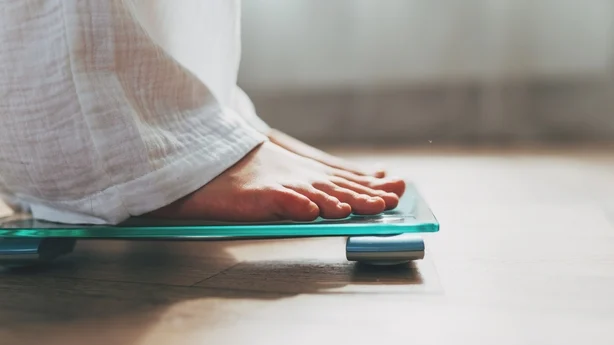Stay updated with the latest beauty tips, trends, and news from our salon experts. Our blog is your go-to source for all things beauty.
"Food noise" is the title Pia Zain gives to the voice in her head that talked about nothing but food for her whole life until she started taking Ozempic.
Pia began taking the zeitgeist-defining drug about a year ago; Bernie Walsh started about two years ago and both women spoke – along with Clinical Psychologist Dr Ruth Yoder – to Brendan O'Connor about their experience of suffering from obesity and how the treatment they’re receiving has changed their lives.
Ozempic – and its stablemate Wegovy – have become game changers for those suffering from diabetes and those afflicted with obesity. Bernie, a community worker from Summerhill in Dublin, told Brendan that she’d spent years on a variety of diets, losing weight, then putting it back on with interest when the diet regime inevitably ended:
"Through my life, dieting, on, off, on, off, on, off. I was 15and a half stone at 15 and by the time I was 21, I was about 20 stone because every time I dieted and I regained, I regained a little bit extra. And at my heaviest, I would have been 28 stone."

Despite the setbacks, Bernie kept trying to lose weight, but each time it would show results for about six months and then the regaining weight phase would start again. The fact that she would come out of a dieting regime heavier than she went in was particularly upsetting for Bernie:
"That would really, really upset you. And people kind of going, 'Oh, you were doing so well, what happened?’ You know?"
Originally from Malaysia, Pia Zain has lived in Cork for the last 12 years. Her mother put her on her first diet when she was just seven years old. She told Brendan that it took her a long time to realise that her physiology and brain chemistry were different from most people:
"I thought that it was one of those things where if I exercised more and ate less, but that wasn’t the case. And I think that taking Ozempic and going through the journey that I have been, has really taught me that my obesity is part of how my brain works."
For the longest time, Pia thought everyone had what she christened 'food noise':
"I thought everybody had it. Food noise is the constant thought of food. So, everything in your life – it's almost like a river of subconscious thought that runs through your day. You plan your day around food, you think about what you’re going to make for other people [...] So, everything in my life was food-related, but it was almost like a heartbeat, I didn’t actually hear it until it was switched off."

Pia joined an integrated programme to combat her obesity. This meant that, in addition to taking Ozempic, she also has access to a consultant, a nutritionist and a health coach. And they all prepared her for what she was going to face, but Pia credits Ozempic with the most immediate effect:
"To be honest, the minute I took the medicine, it was like a switch – done. I never thought about food in the way that I was thinking about it before. It was like it disappeared."
Bernie had a harder time with the drug for the first few weeks. She was physically sick, she found herself running to the toilet, and she suffered from lethargy:
"But the weight loss was so fast that I kept going, I kept going. Now there are some people who can’t. Some people get that sick that they can’t stay in. But the whole difference in how you look at food is fascinating."
For Bernie, the treatment isn’t just about weight loss at this stage – she says it’s about getting her life back:
"I was using a walking stick in the house and a rollator in the back of my car for if I had to go to the supermarket or into town. They’re both gone. They’ve been thrown away."

Brendan asks Dr Ruth Yoder – who spent over 20 years working in an obesity clinic in Dublin – if drugs like Ozempic have changed everything in terms of treatment. Ruth is pretty emphatic:
"No. The essentials are still there, the basics – three meals a day, regular eating, avoiding long gaps, working with the dieticians to achieve a better balance, paying attention to your nutritional needs, hydrating, being active."
Ruth cautions that for people with high levels of food noise – like Pia – Ozempic works very well, but it doesn’t work for everybody, particularly those with underlying emotional issues:
"People who really use food to manage their emotional life, it’s not appropriate until we’ve equipped them with other tools that they’re not using food to suppress trauma, for example, that they’re not using food to self-soothe. Only after those issues have been addressed will we introduce the drug to give it a trial."
Wonder drug or tool in the arsenal of the people fighting obesity – the superstar status of drugs like Ozempic means we’ll be talking about them and debating them and finding out more about them for the foreseeable future.
You can hear Brendan’s full conversation with Bernie, Pia and Ruth by clicking above.
For information on obesity, speak with your GP or visit HSE.ie.